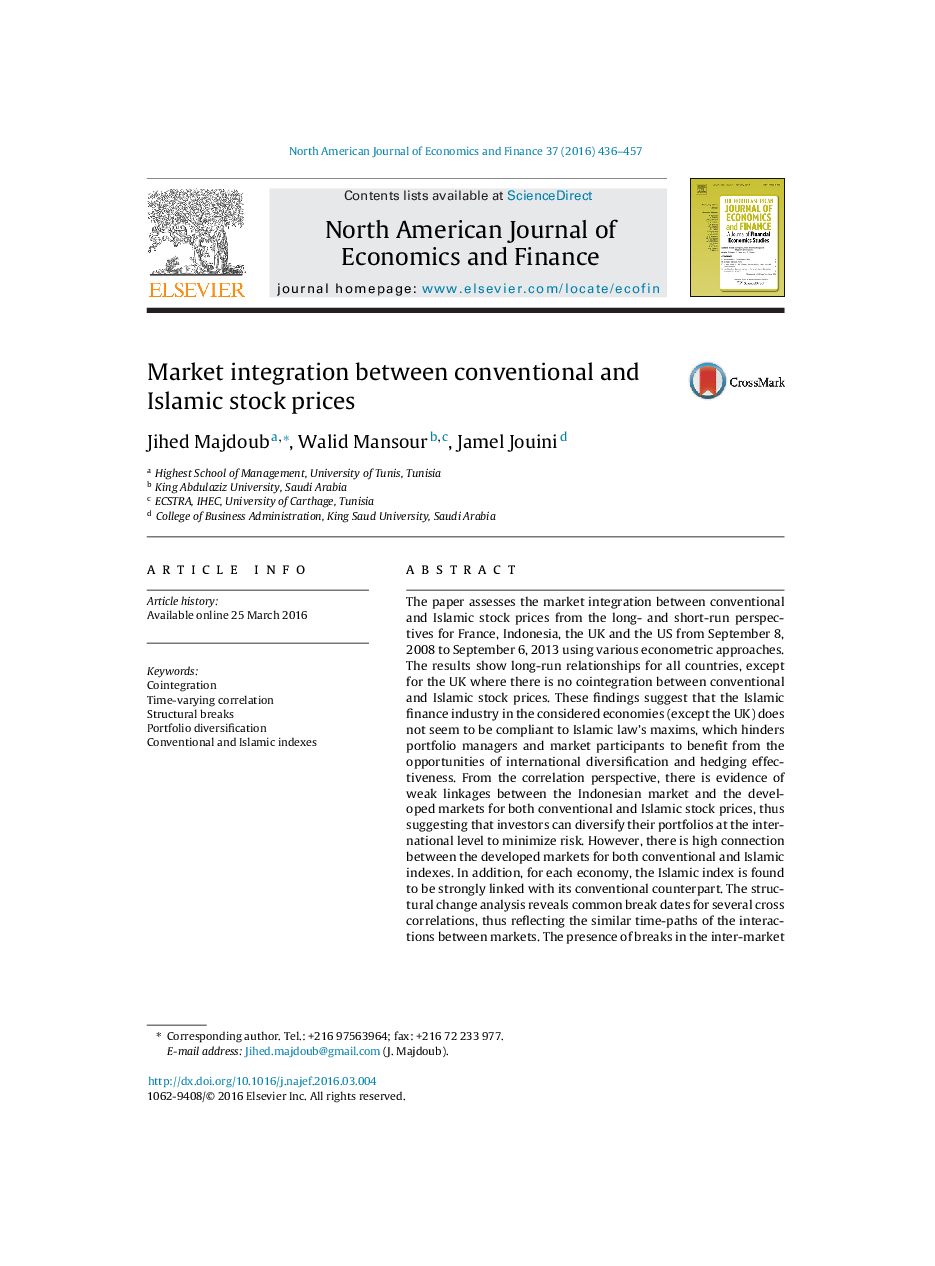| Article ID | Journal | Published Year | Pages | File Type |
|---|---|---|---|---|
| 974924 | The North American Journal of Economics and Finance | 2016 | 22 Pages |
The paper assesses the market integration between conventional and Islamic stock prices from the long- and short-run perspectives for France, Indonesia, the UK and the US from September 8, 2008 to September 6, 2013 using various econometric approaches. The results show long-run relationships for all countries, except for the UK where there is no cointegration between conventional and Islamic stock prices. These findings suggest that the Islamic finance industry in the considered economies (except the UK) does not seem to be compliant to Islamic law's maxims, which hinders portfolio managers and market participants to benefit from the opportunities of international diversification and hedging effectiveness. From the correlation perspective, there is evidence of weak linkages between the Indonesian market and the developed markets for both conventional and Islamic stock prices, thus suggesting that investors can diversify their portfolios at the international level to minimize risk. However, there is high connection between the developed markets for both conventional and Islamic indexes. In addition, for each economy, the Islamic index is found to be strongly linked with its conventional counterpart. The structural change analysis reveals common break dates for several cross correlations, thus reflecting the similar time-paths of the interactions between markets. The presence of breaks in the inter-market linkages has important implications for international investors as regards portfolio diversification benefits and for financial policy makers regarding contagion risks and market policies.
